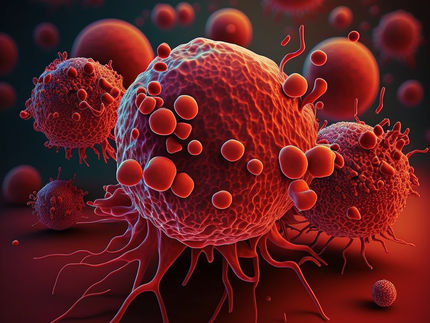Bioniche Expands Patent Portfolio with Three New Patents
Patents cover human health technologies in U.S. and EU
Bioniche Life Sciences Inc. announced that it has been granted three new patents for its core proprietary Mycobacterial Cell Wall-DNA Complex (MCC) and the related oligonucleotides.
The Company has been granted a patent in the U.S. entitled "Hyaluronic acid in the treatment of cancer" (U.S. Patent No. 7125858), inventors Dr. Nigel C. Phillips and Dr. Mario C. Filion, Bioniche Therapeutics. The patent has composition and methods claims covering the use of hyaluronic acid in combination with the Company's proprietary MCC and oligonucleotide technologies for the treatment of cancer. The patent also covers the use of hyaluronic acid with the anticancer agent tamoxifen for the treatment of cancer.
Mycobacterial Cell Wall-DNA Complex (MCC) is a composition prepared from from Mycobacterium phlei, a saprophytic mycobacteria. MCC has immune stimulatory as well as apoptosis inducing activity against cancer cells. A formulation of MCC is currently under development for the treatment of high-grade non-invasive bladder cancer.
The Company has also been granted two additional patents focusing on olionucleotides, one in Europe and one in the U.S. The European patent, "Conformation-Activity Relationship of Apoptosis-Inducing Phosphodiester Oligonucleotides" (EP patent no. 1448986), describes the invention of a computer-based method to predict the anticancer activity of oligonucleotides. The U.S. patent, "Oligonucleotide compositions and their use to induce differentiation of cells" (US patent no. 7087586), is based on method claims for 3'-OH, 5'-OH, chemically unmodified synthetic phospiodiester oligonucleotide covering use in both animals and humans with disease associated with insufficient differentiation of cells or to increase differentiation of pluriopotent cells. Such disease includes leukemia and lymphoma, among others.
Most read news
Organizations
Other news from the department research and development

Get the life science industry in your inbox
By submitting this form you agree that LUMITOS AG will send you the newsletter(s) selected above by email. Your data will not be passed on to third parties. Your data will be stored and processed in accordance with our data protection regulations. LUMITOS may contact you by email for the purpose of advertising or market and opinion surveys. You can revoke your consent at any time without giving reasons to LUMITOS AG, Ernst-Augustin-Str. 2, 12489 Berlin, Germany or by e-mail at revoke@lumitos.com with effect for the future. In addition, each email contains a link to unsubscribe from the corresponding newsletter.






















































